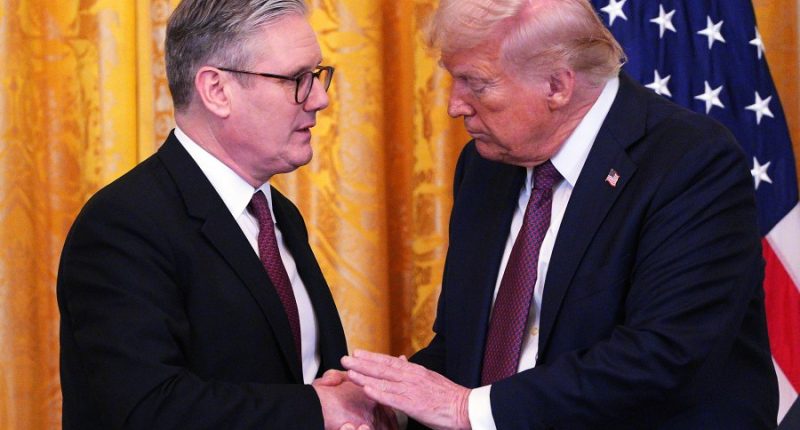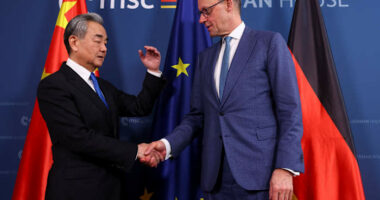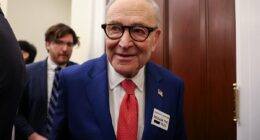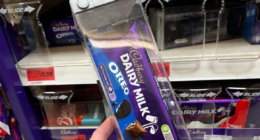Share this @internewscast.com
WASHINGTON (AP) — The United States and Britain are anticipated to declare a trade agreement on Thursday that will mitigate the impact of President Donald Trump’s extensive tariffs and possibly offer a political triumph for Prime Minister Keir Starmer.
On Wednesday, Trump mentioned he would unveil a “major trade deal” with a “big, highly respected country,” which he did not specify. A U.S. official, who spoke on the condition of anonymity to discuss the negotiations before an announcement, confirmed the country to be Britain.
Trump later posted on Truth Social that it “should be a very big and exciting day for the United States of America and the United Kingdom.”
Starmer’s office said the prime minister would give an “update” about U.S. trade talks later in the day.
“As you know, talks with the U.S. have been ongoing and you’ll hear more from me about that later today,” Starmer remarked at a defense conference in London.
The president placed a 10% tax on imports from Britain, as well as 25% tariffs on autos, steel and aluminum on the premise that doing so would foster more factory jobs domestically.
A major goal of British negotiators has been to reduce or lift the U.S. import tax on U.K. cars and steel. The U.S. is the largest destination for British cars, accounting for more than a quarter of U.K. auto exports in 2024, according to the Office for National Statistics.
Britain has also sought tariff exemptions for pharmaceuticals, while the U.S. wants greater access to the British market for agriculture products. Starmer’s government has said it won’t lower U.K. food standards to allow in chlorine-rinsed American chicken or hormone-treated beef.
If a deal is announced, the British government will see it as a vindication of Starmer’s emollient approach to Trump, which has avoided direct confrontation or criticism. Unlike the European Union, Britain did not announce retaliatory tariffs on U.S. goods in response to Trump’s import taxes.
A trade deal with the United Kingdom would be symbolically important, and a relief for British exporters. But an agreement would do little to address Trump’s core concern about persistent trade deficits that prompted him to impose import taxes on countries around the world.
The U.S. ran a $11.9 billion trade surplus in goods with the U.K. last year, according to the Census Bureau. The $68 billion in goods that the U.S. imported from the U.K. last year accounted for just 2% of all goods imported into the country.
The U.S. is much more important to the U.K. economy. It was Britain’s biggest trading partner last year, according to government statistics, though the bulk of Britain’s exports to the U.S. are services rather than goods.
Trump has shown a desire to strike a trade agreement with the U.K. since it voted in 2016 to leave the European Union. Yet as recently as Tuesday, Trump showed no awareness of the possible terms of the deal when asked about its possibility.
“They’re offering us concessions?” Trump told reporters. “I hope so… They do want to make a deal very badly.”
Trump has previously said that his leverage in talks would be U.S. consumers, but he appeared to suggest that the U.K. would also start buying more American-made goods.
“I think that the United Kingdom, like every other country, they want to … go shopping in the United States of America,” he said.
A trade deal with the U.S. is one of several that Starmer’s government is seeking to strike. On Tuesday, Britain and India announced a trade after three years of negotiations. The U.K. is also trying to lift some of the barriers to trade with the European Union imposed when Britain left the bloc in 2020.













